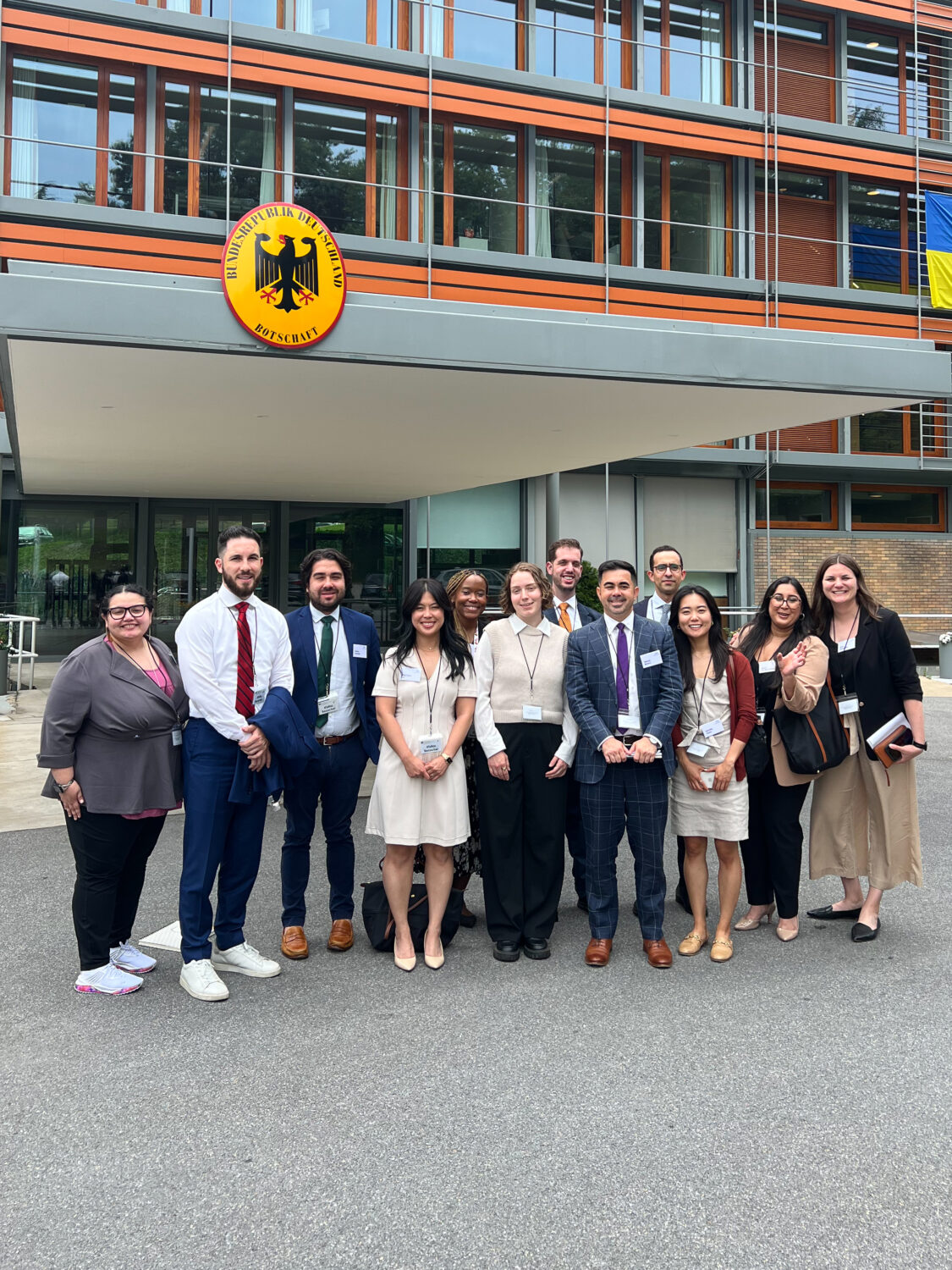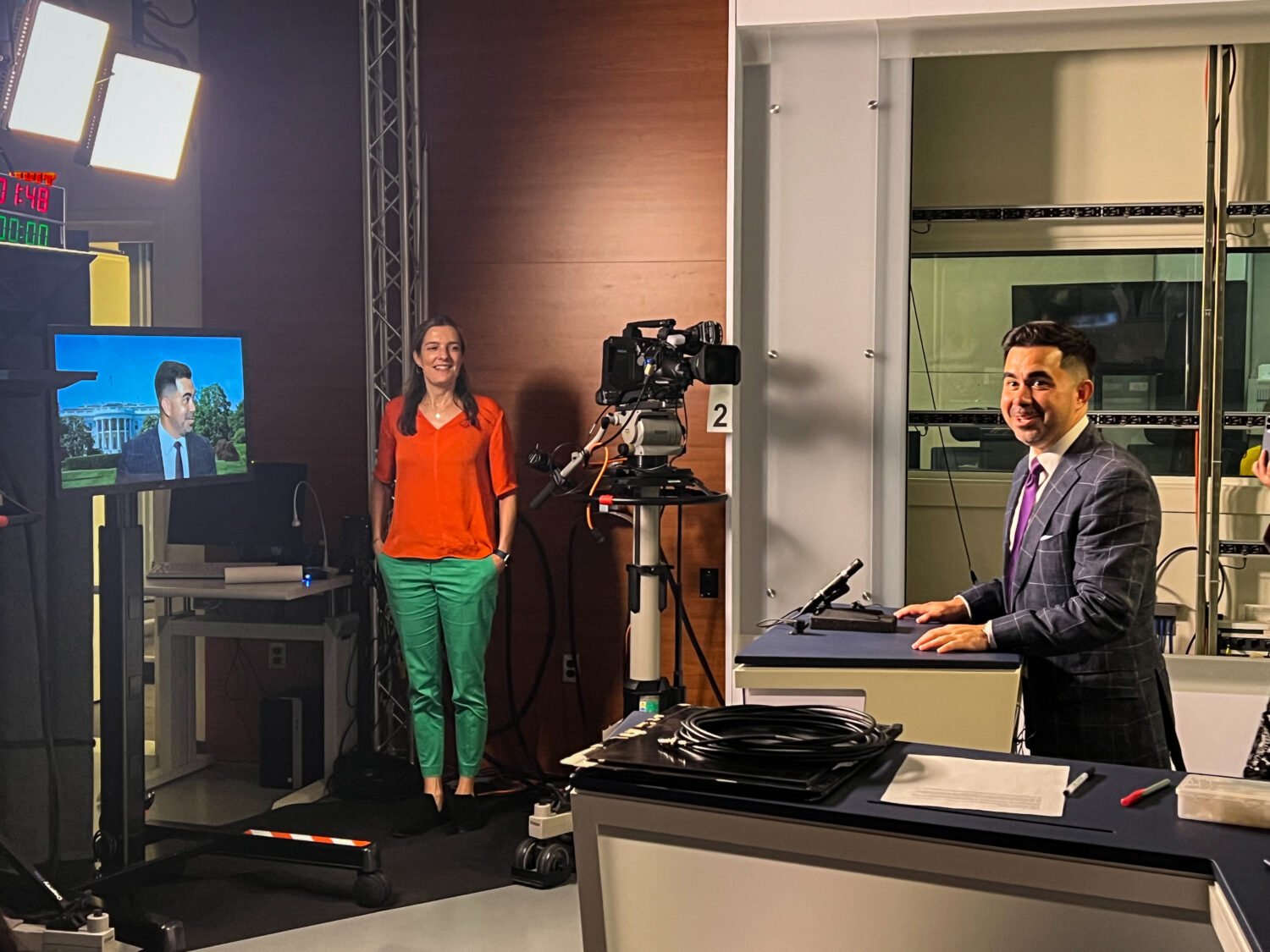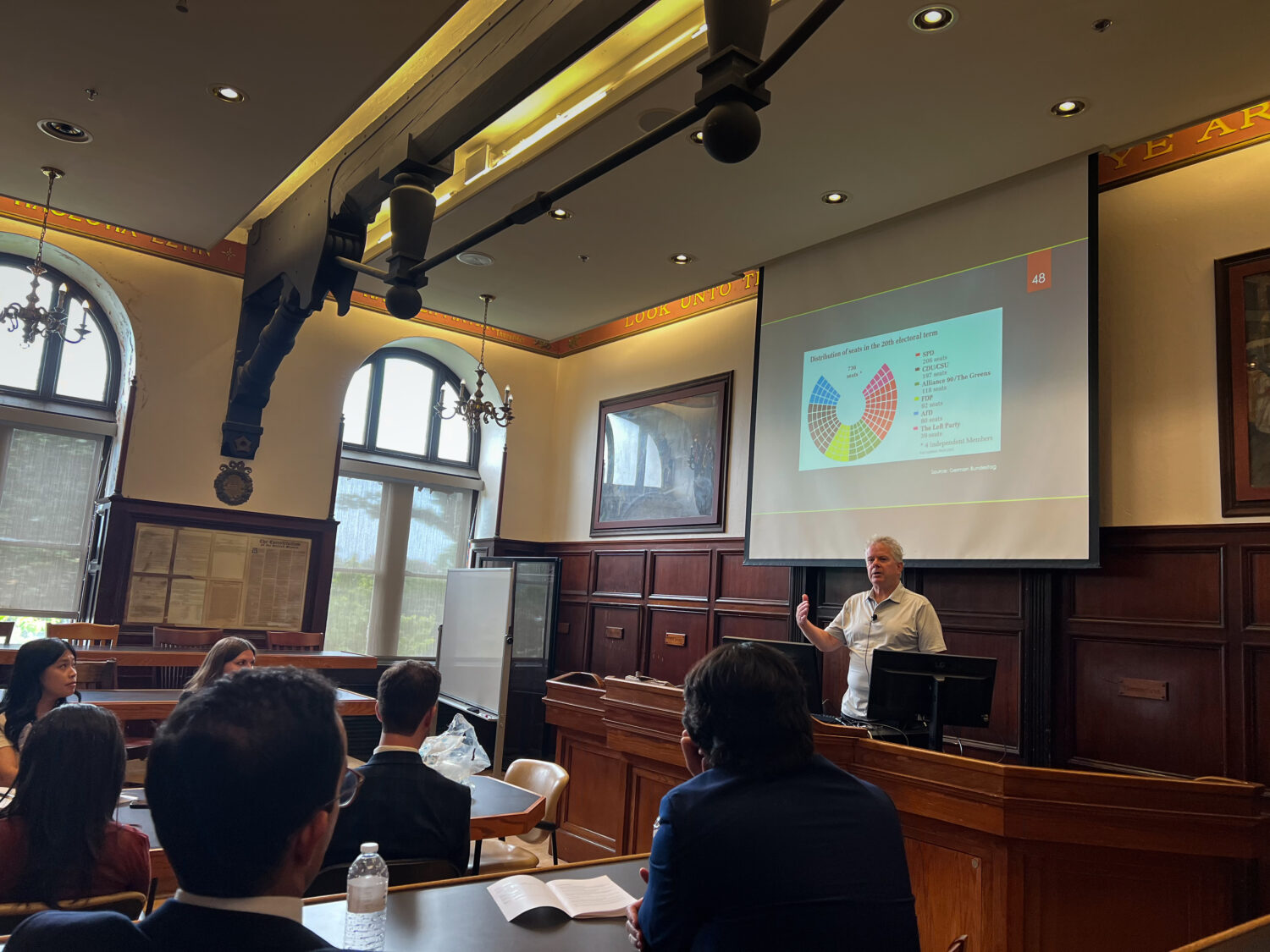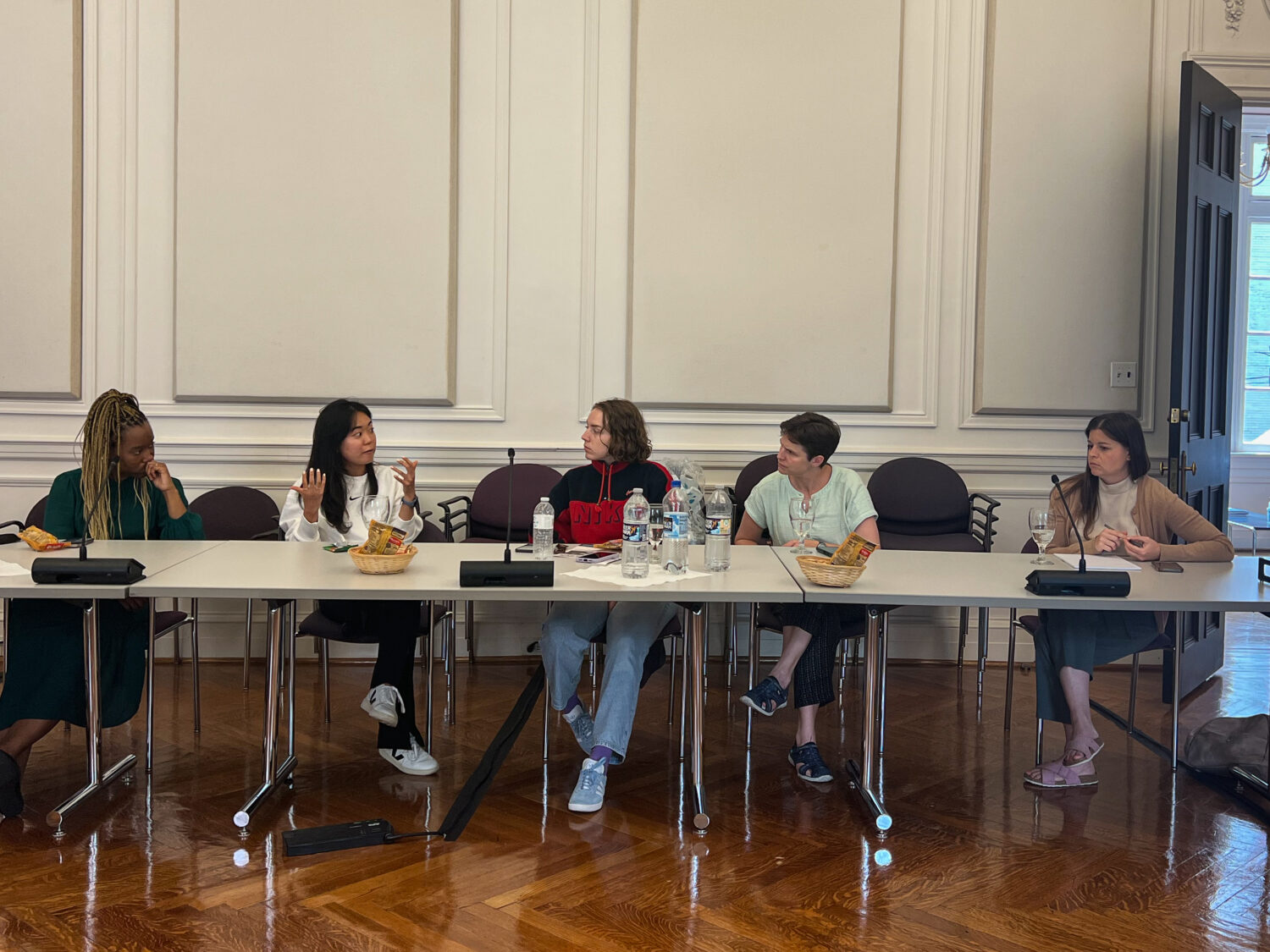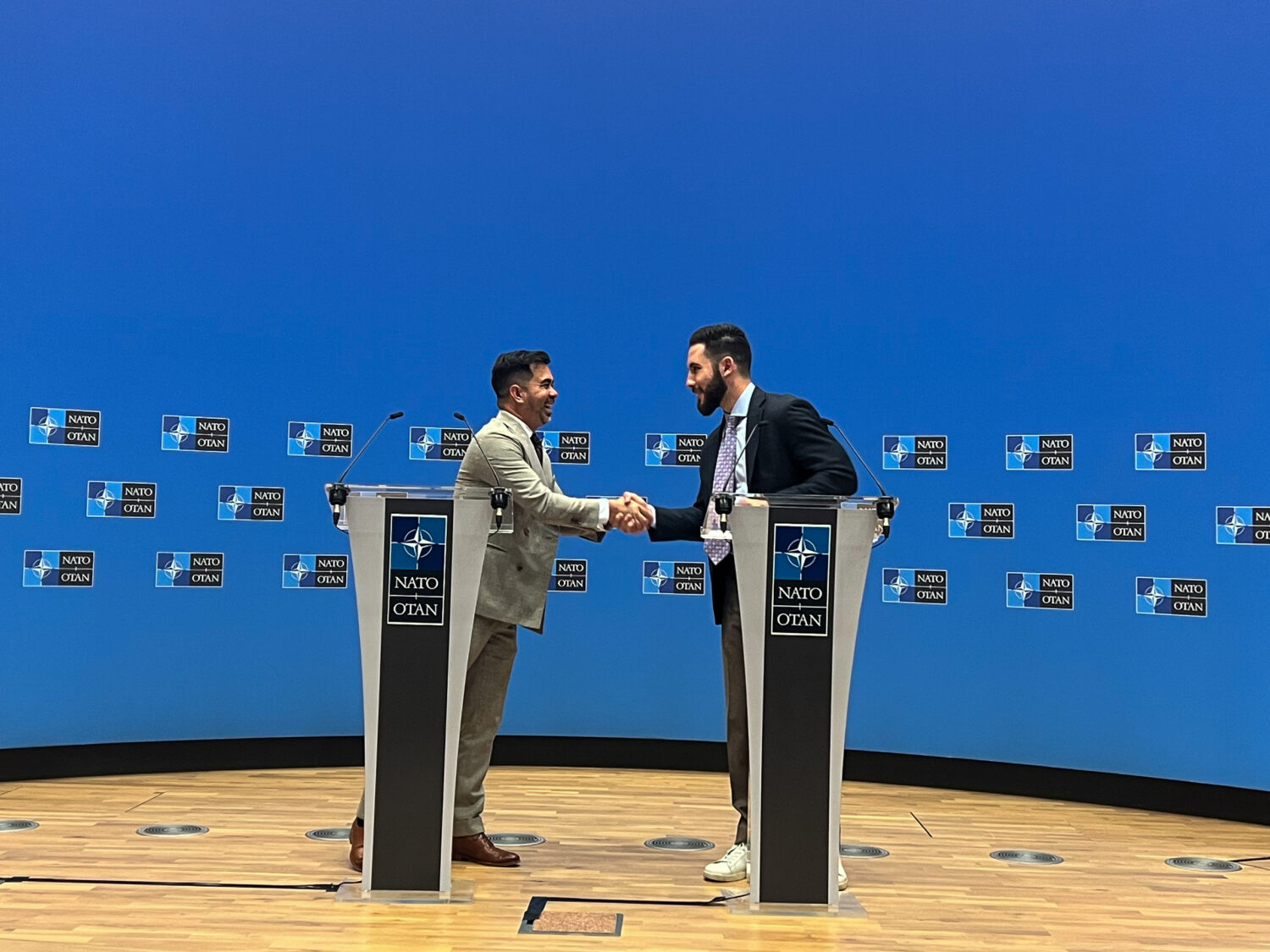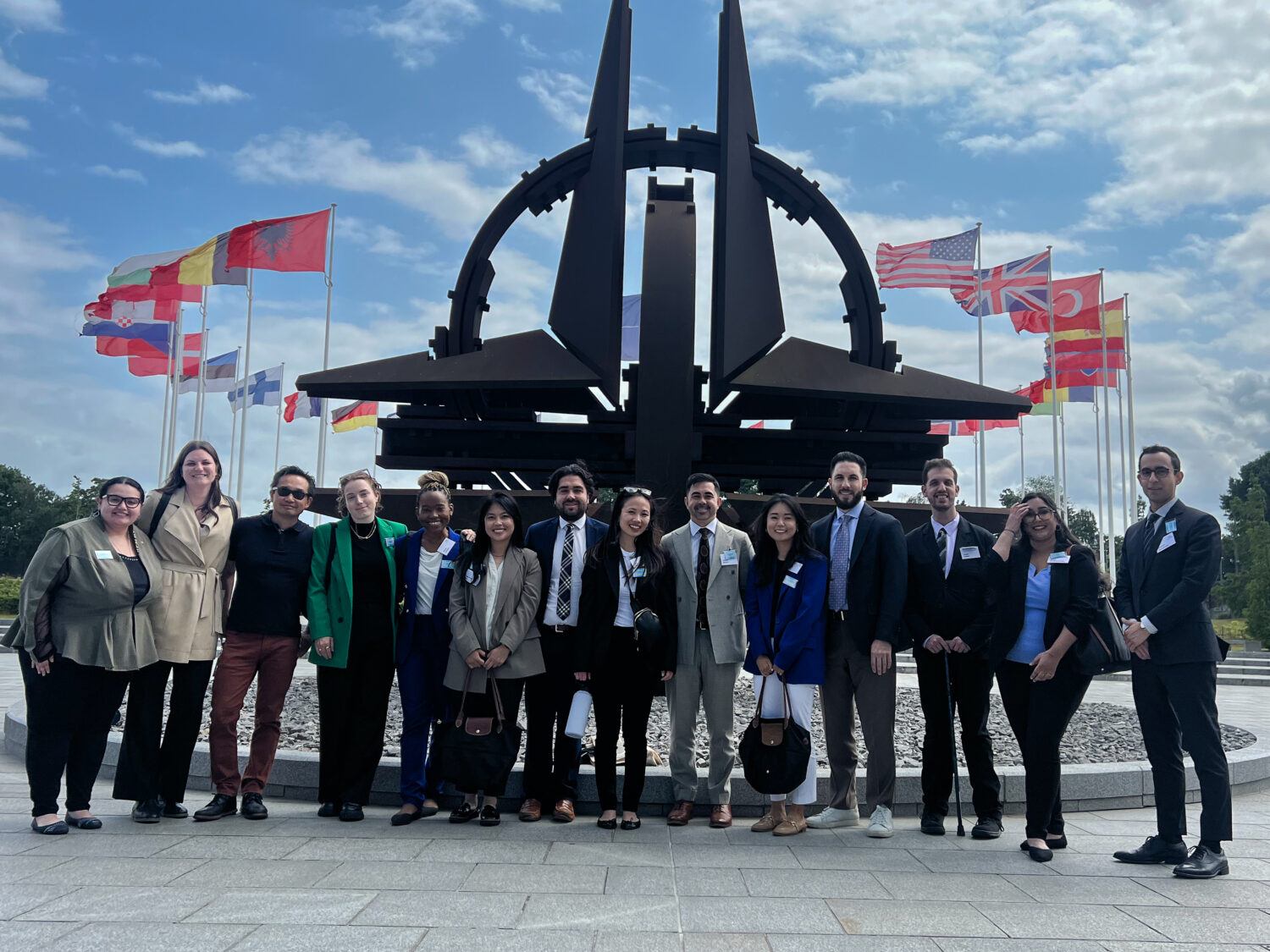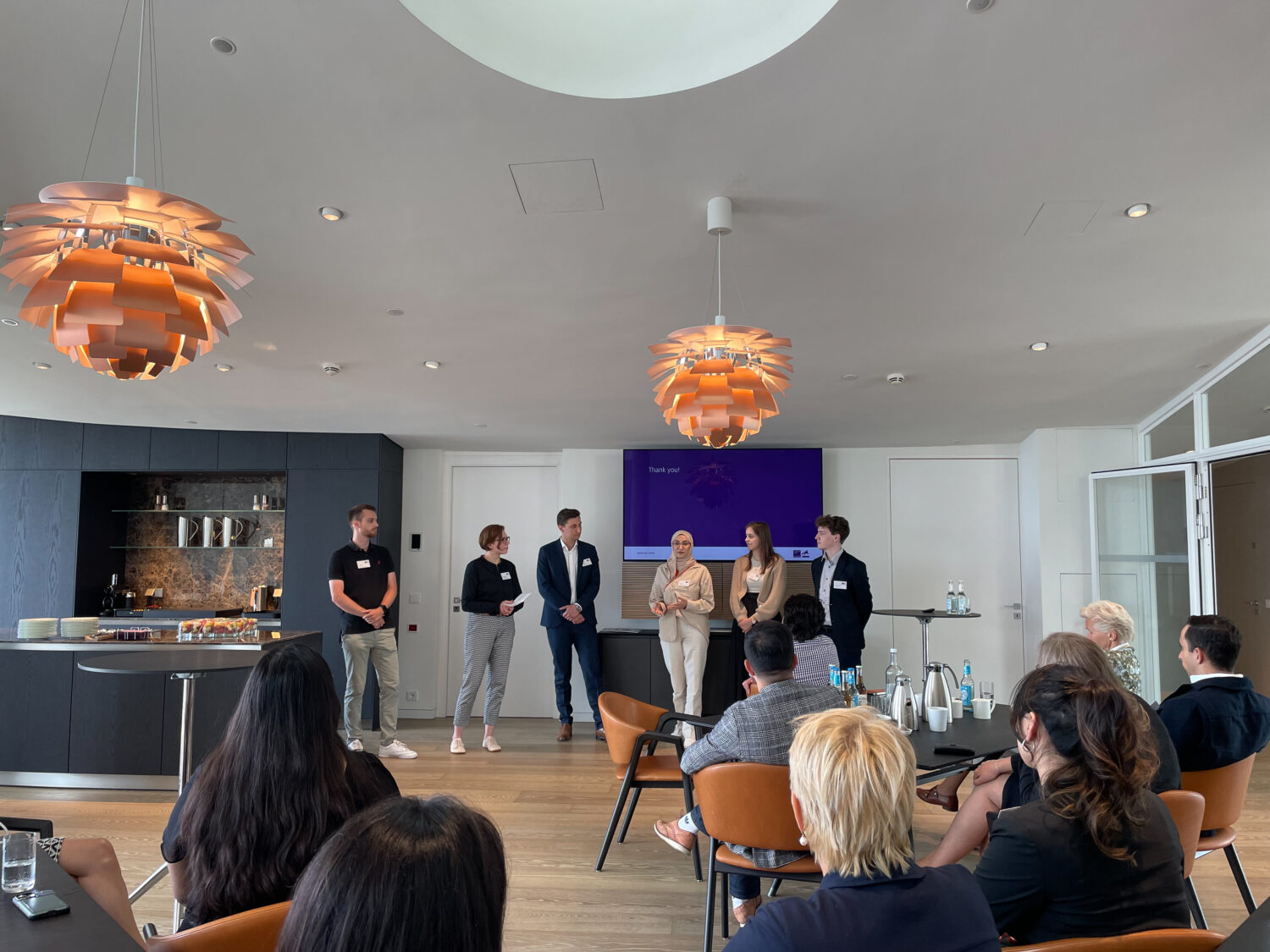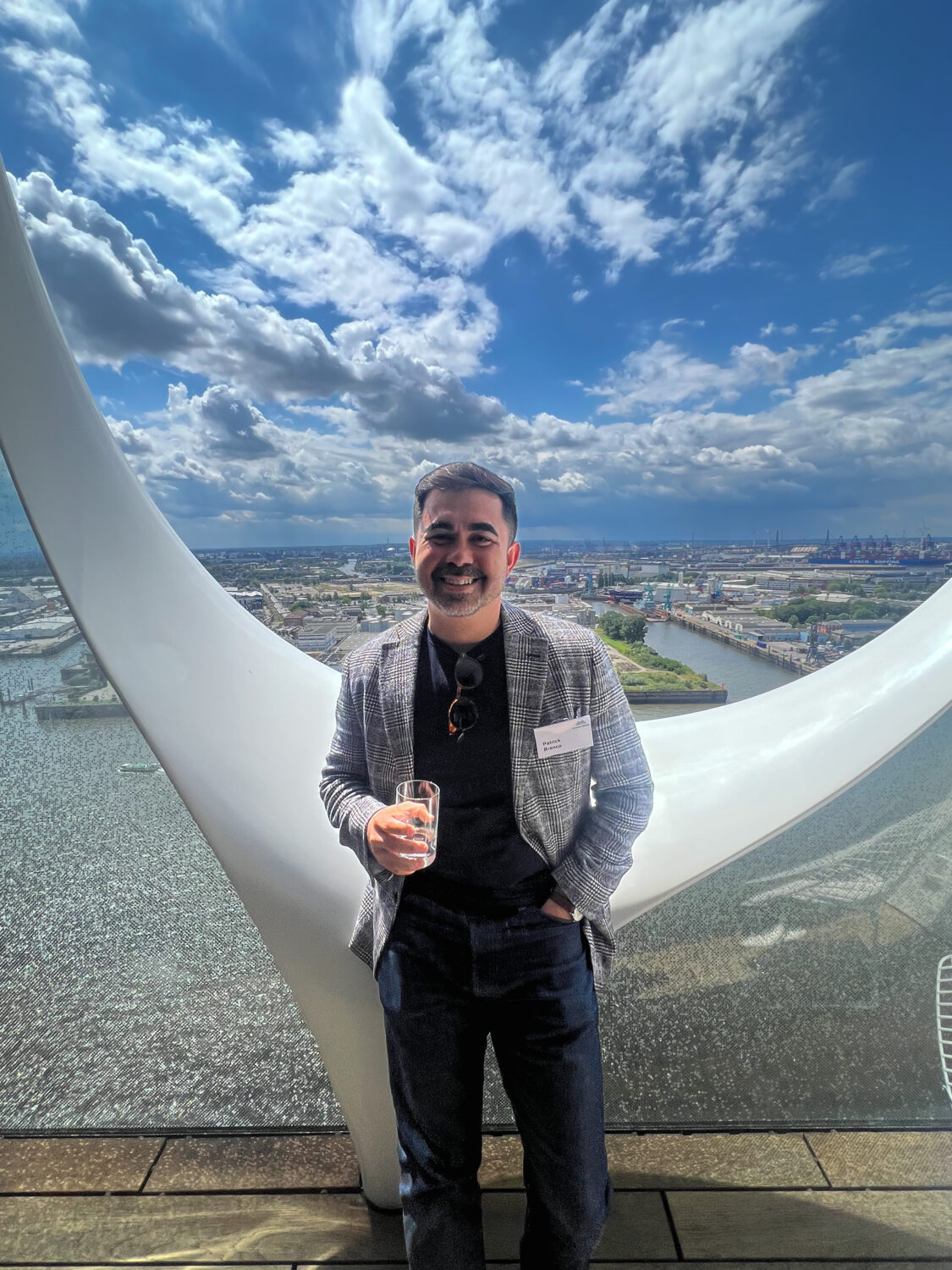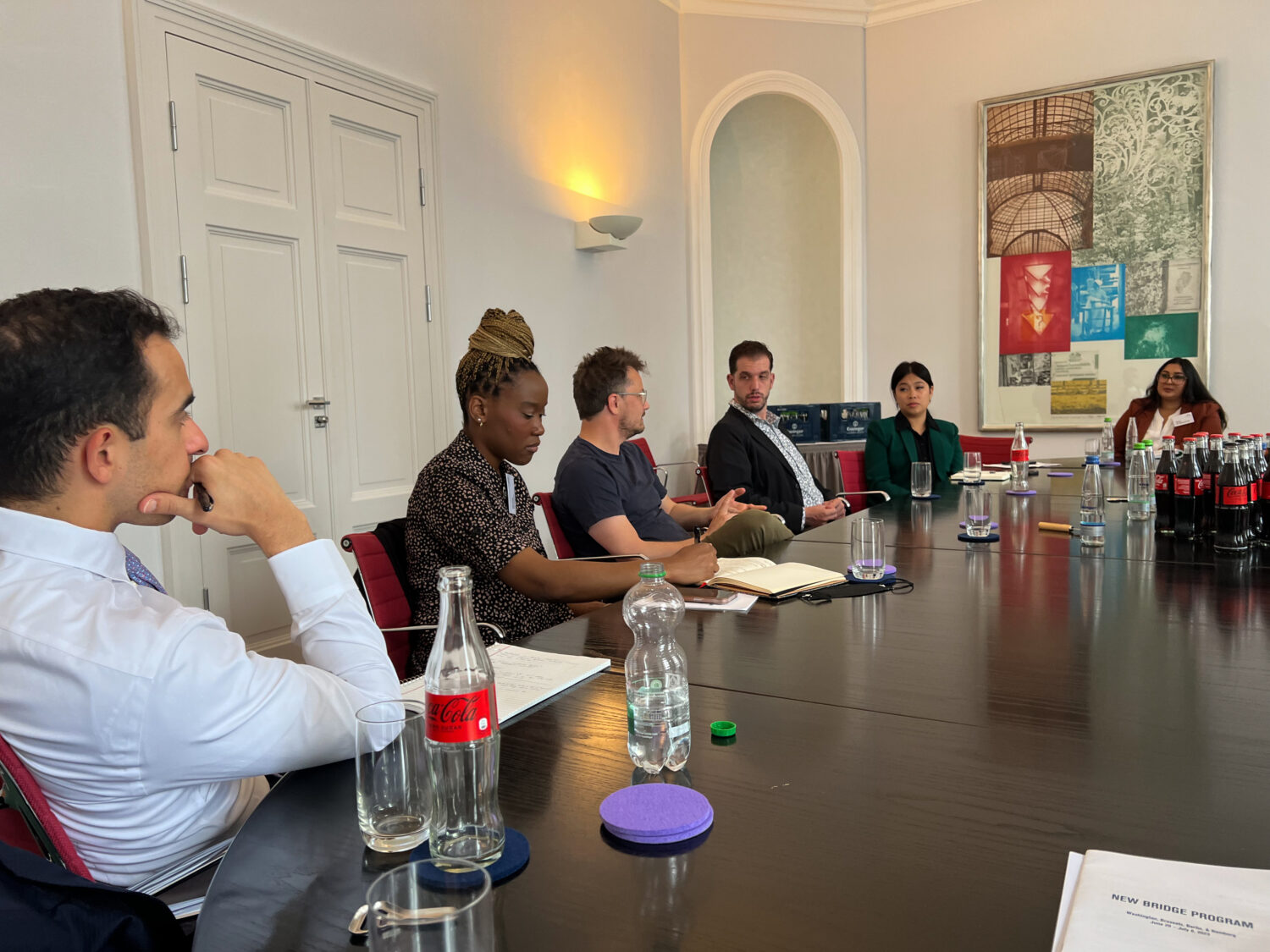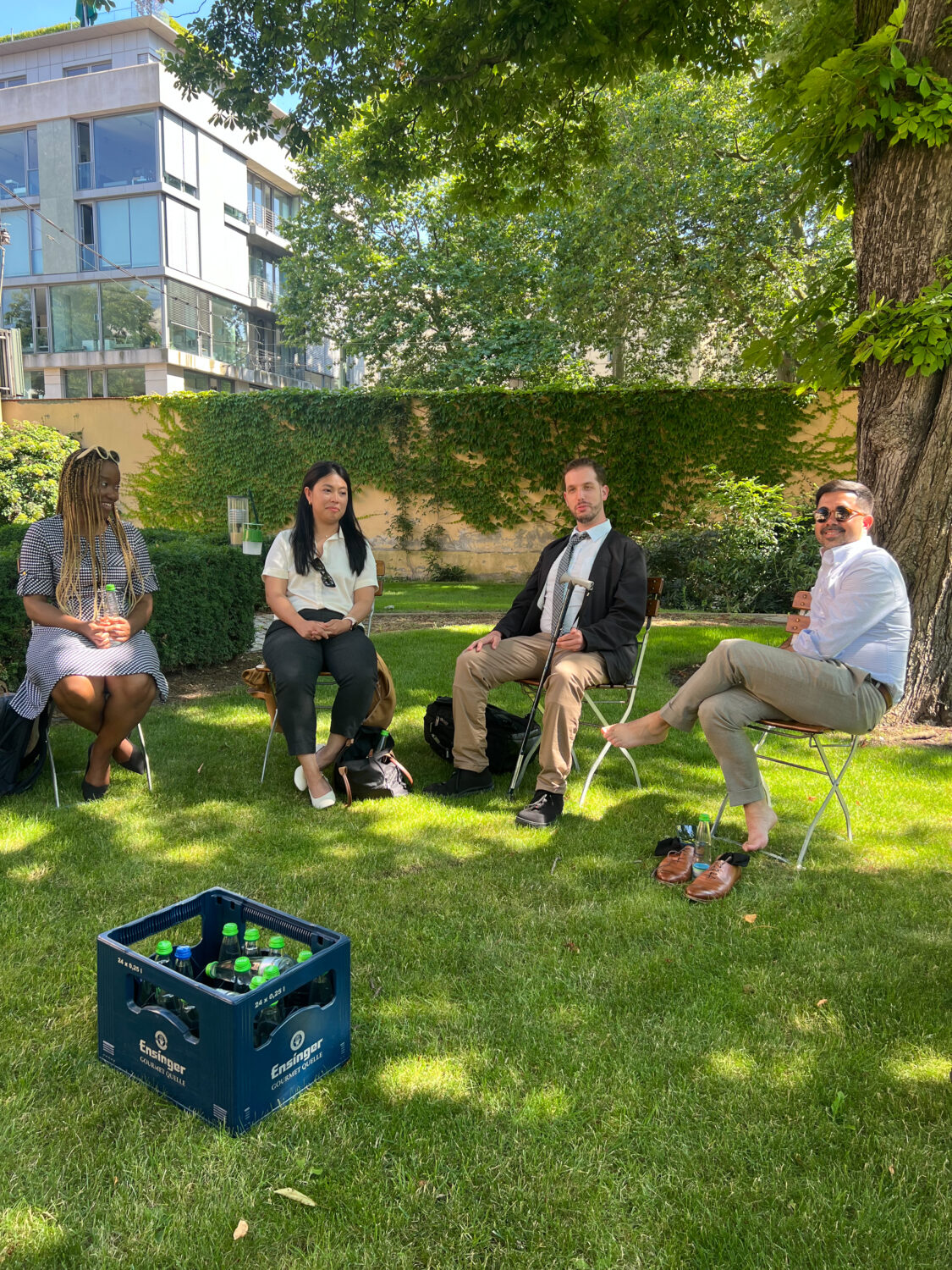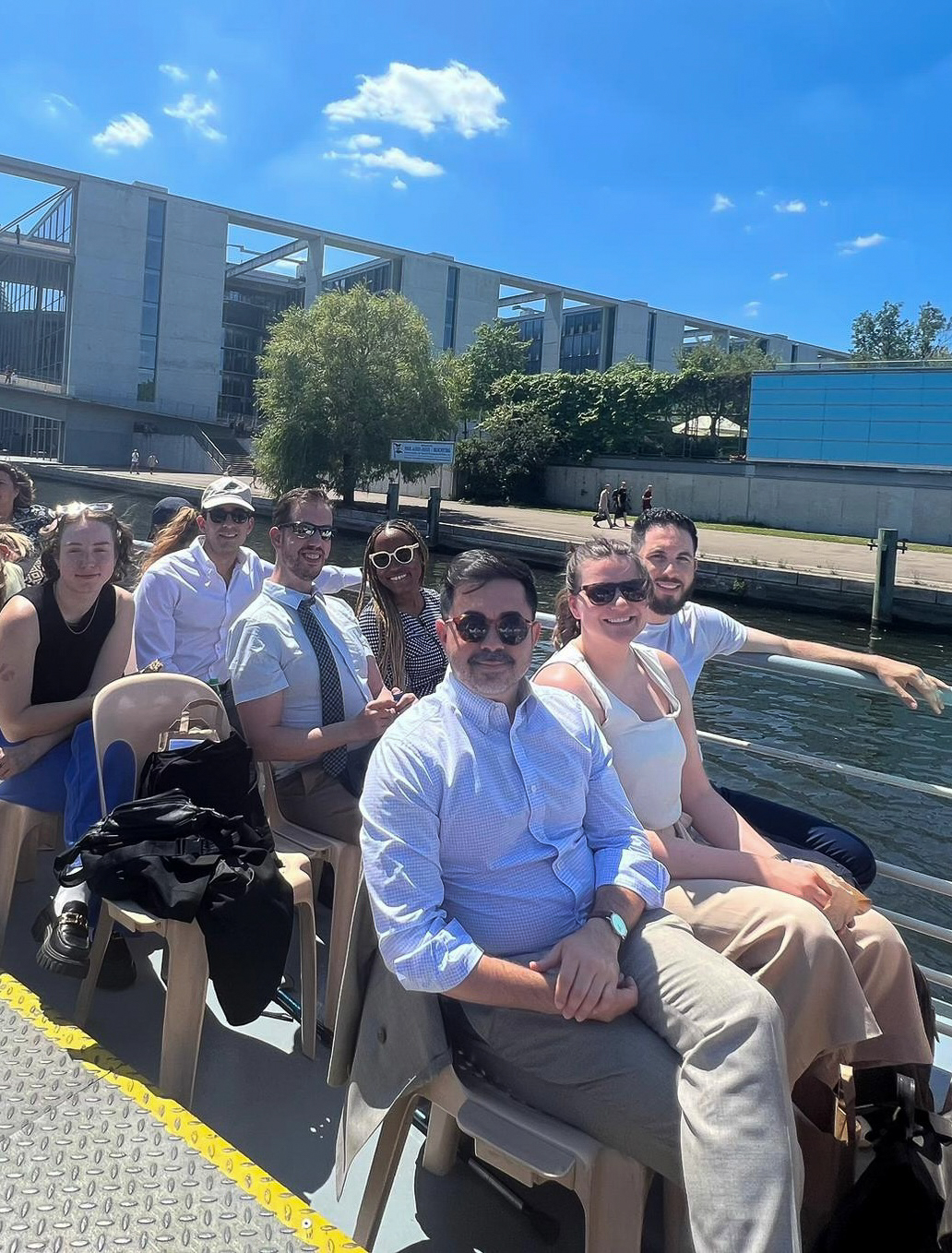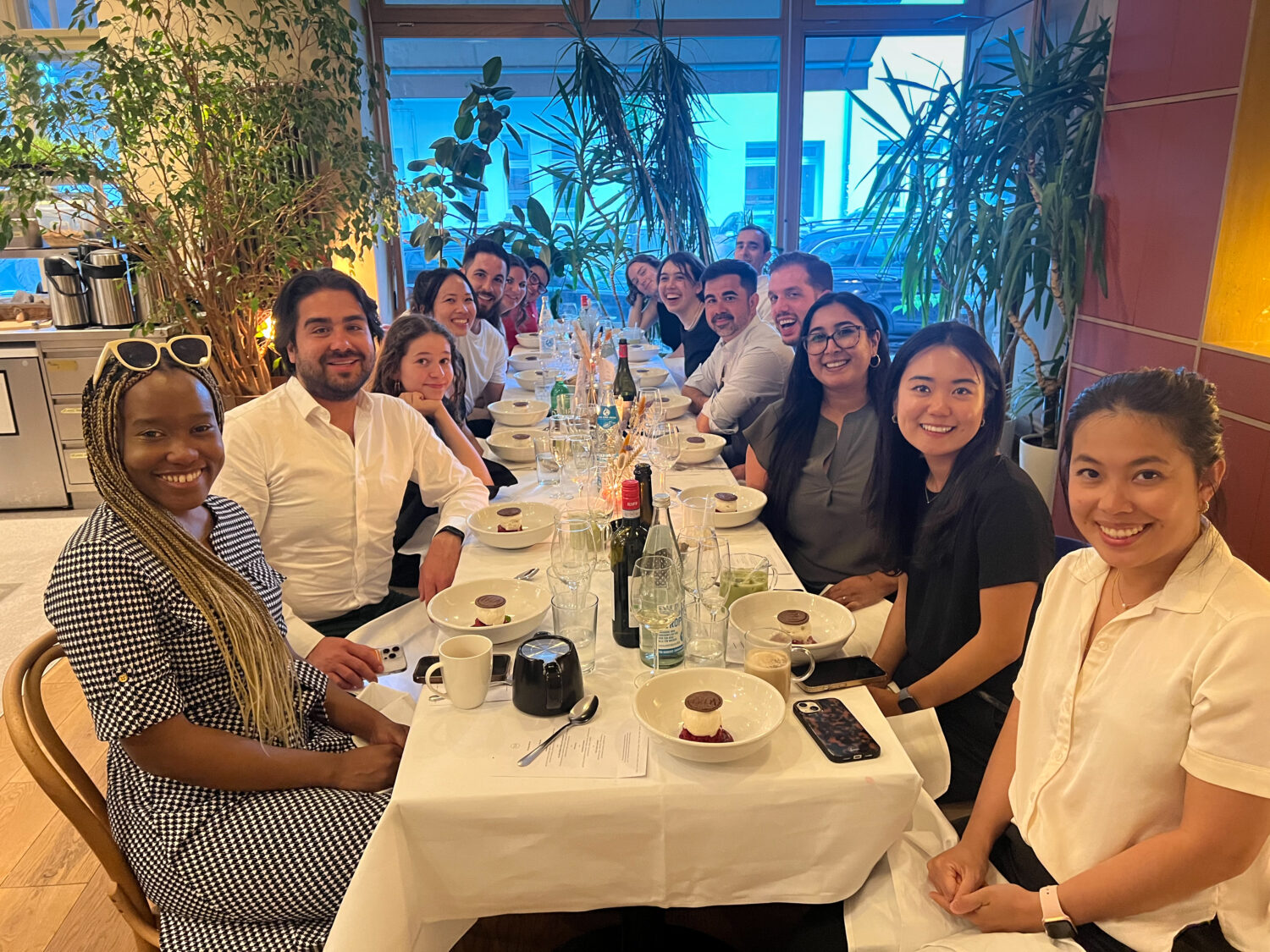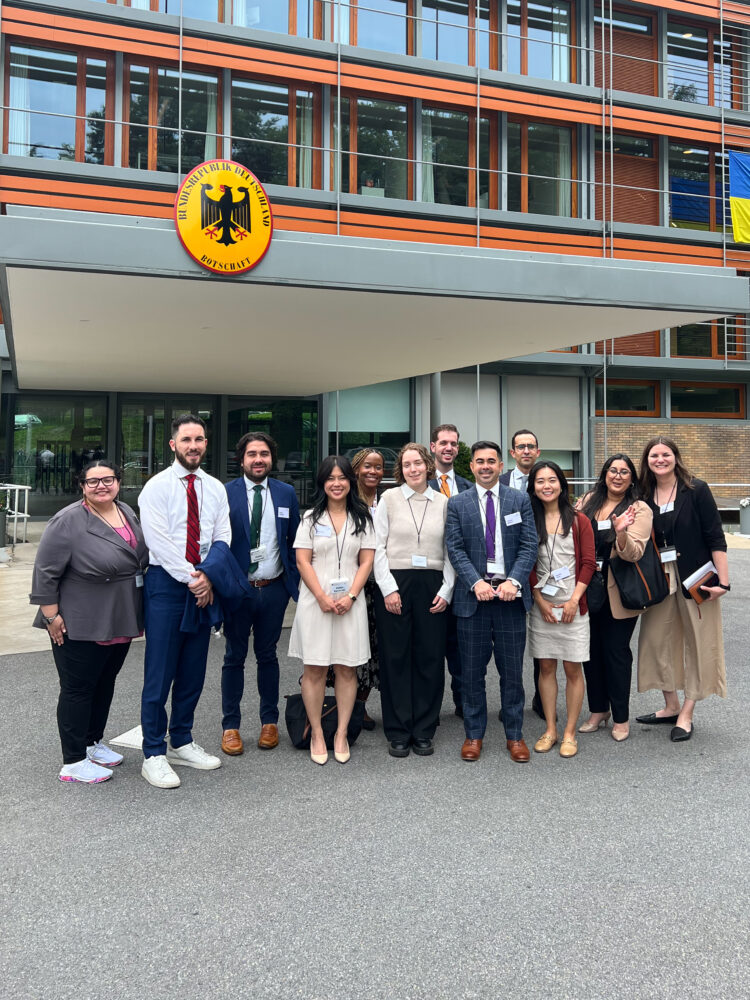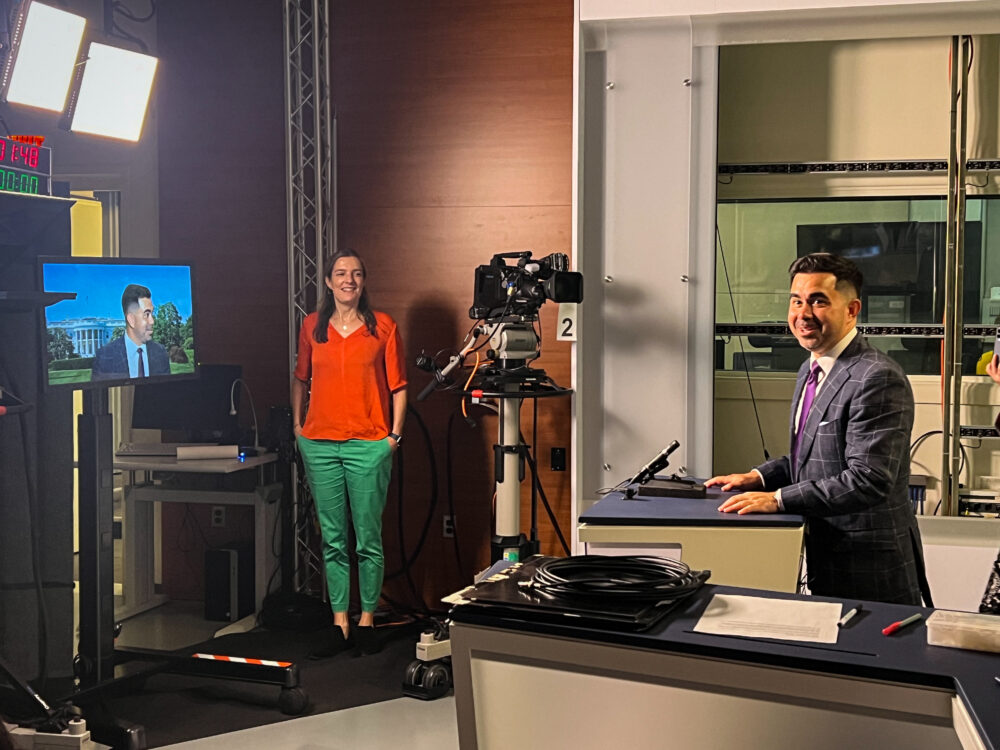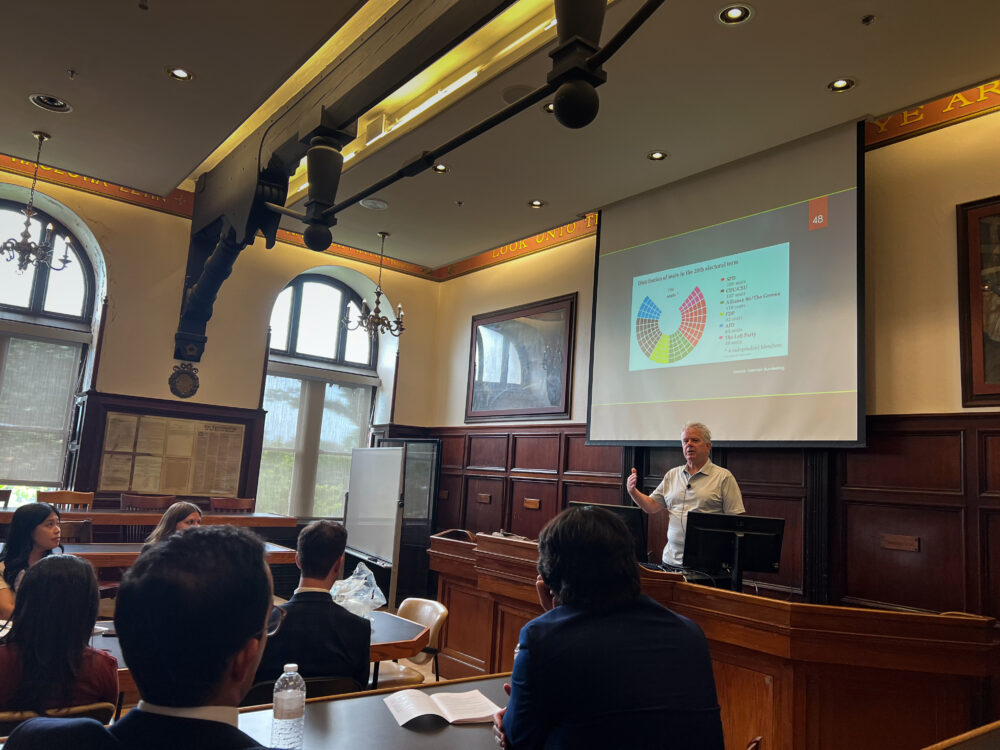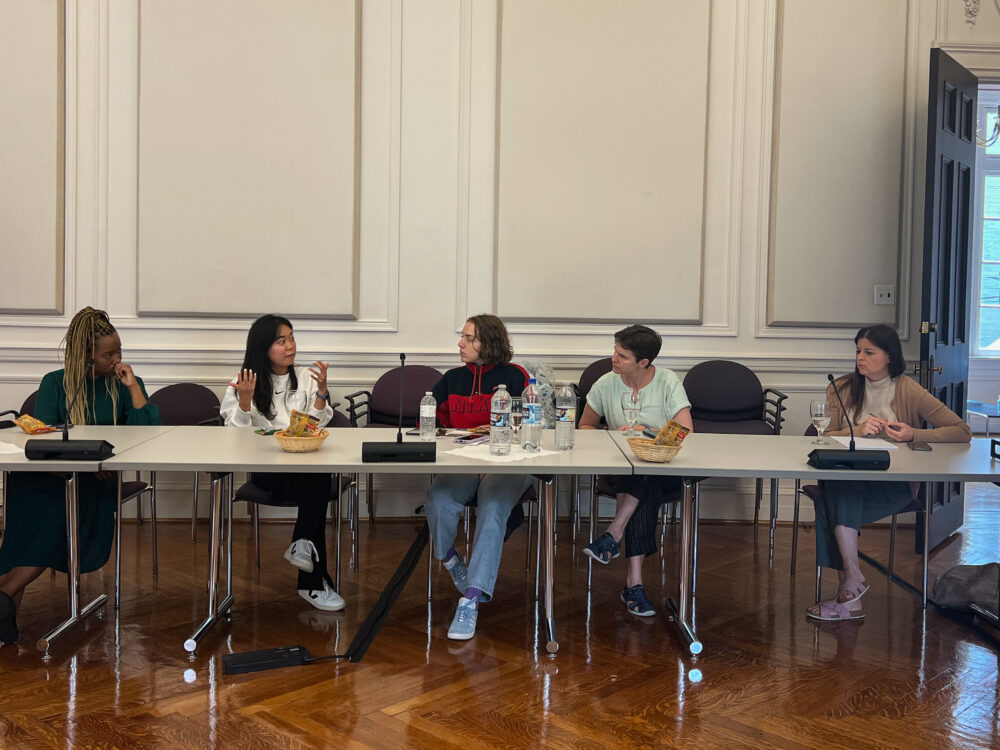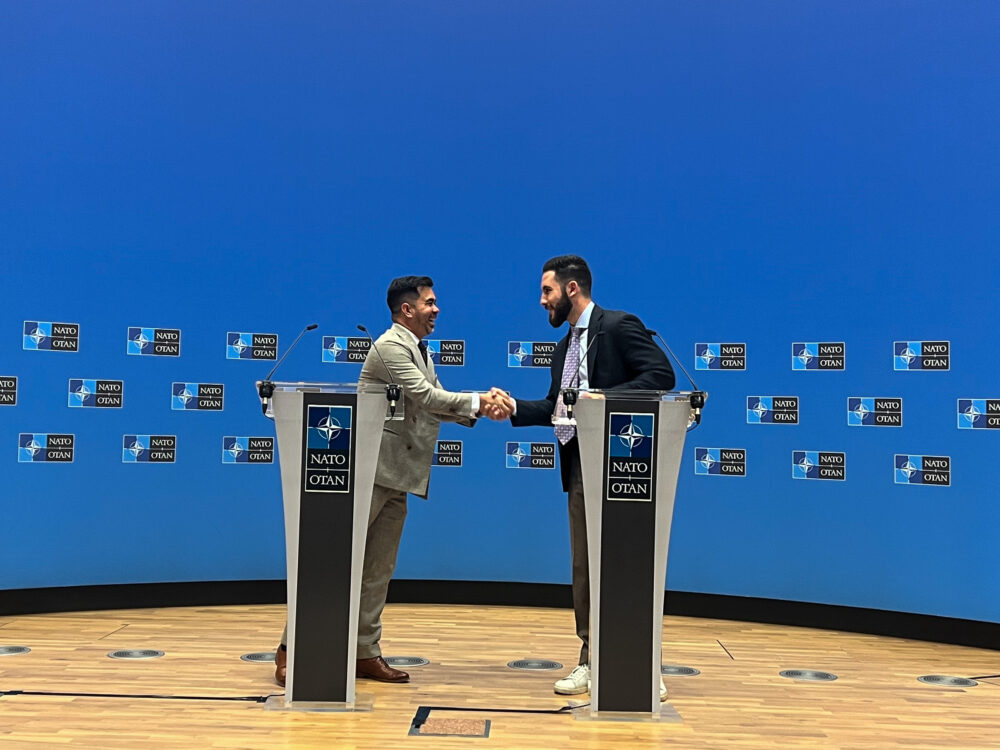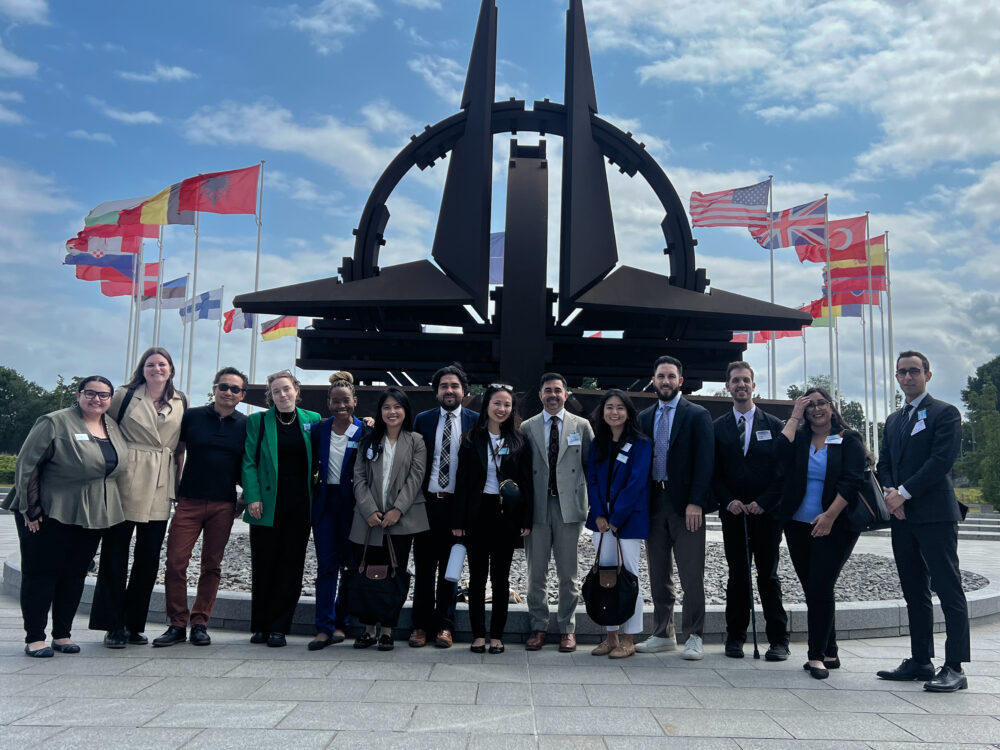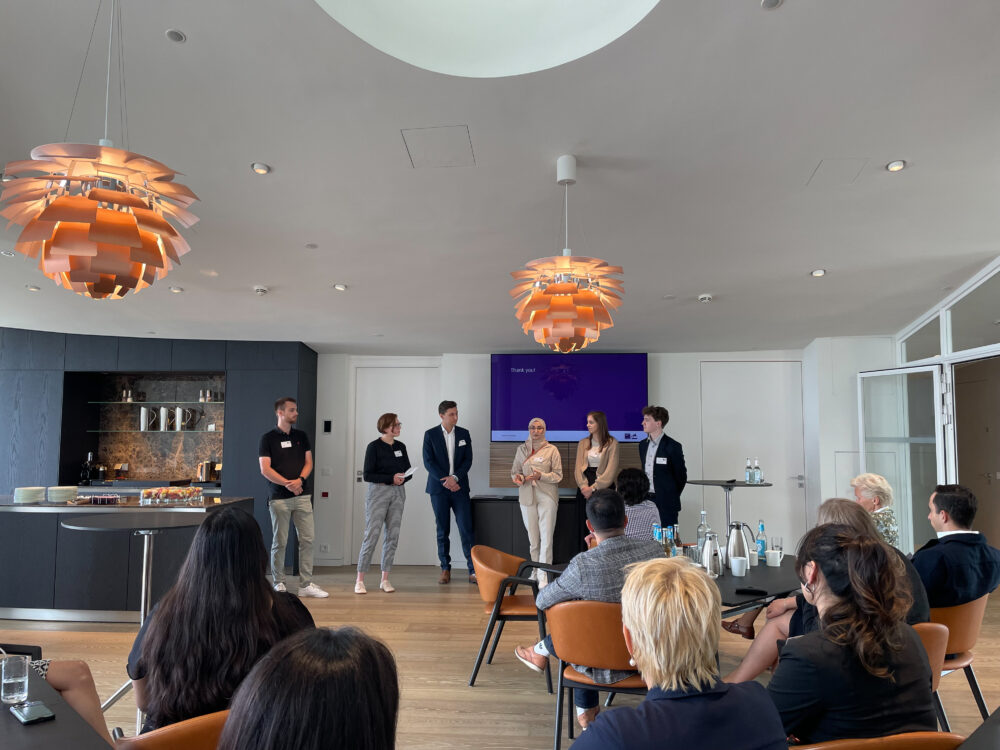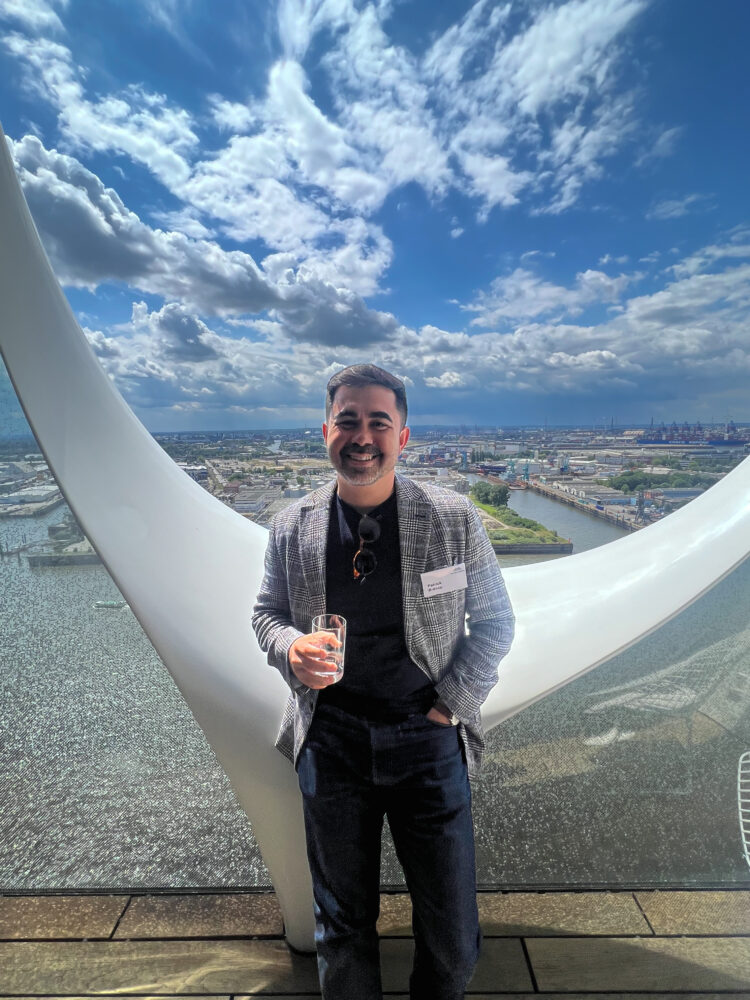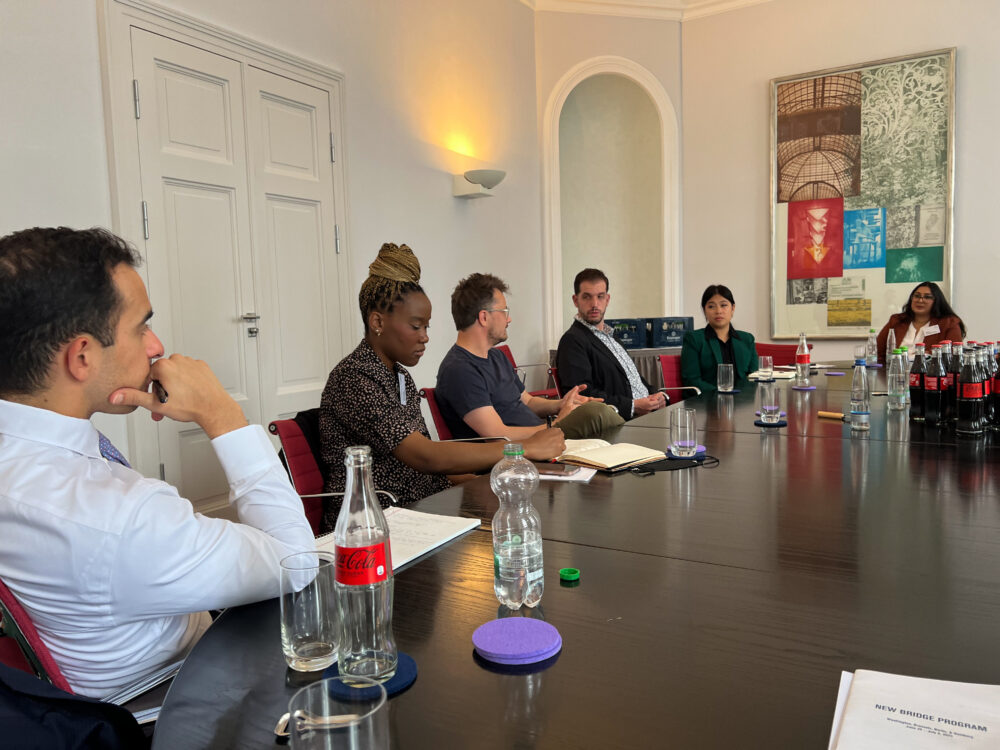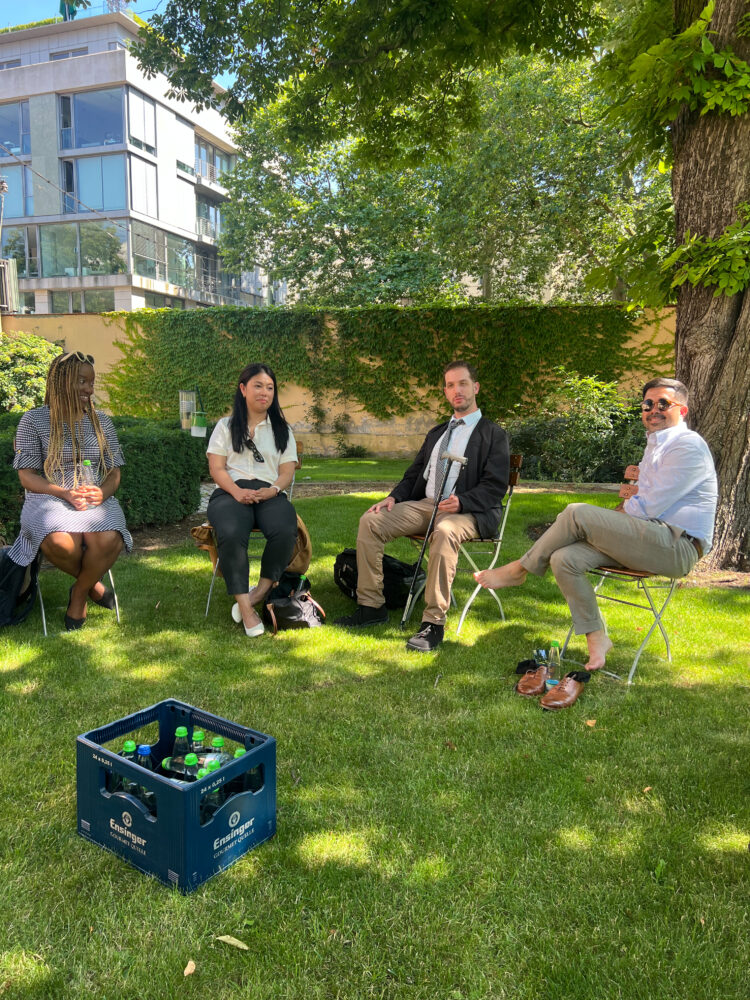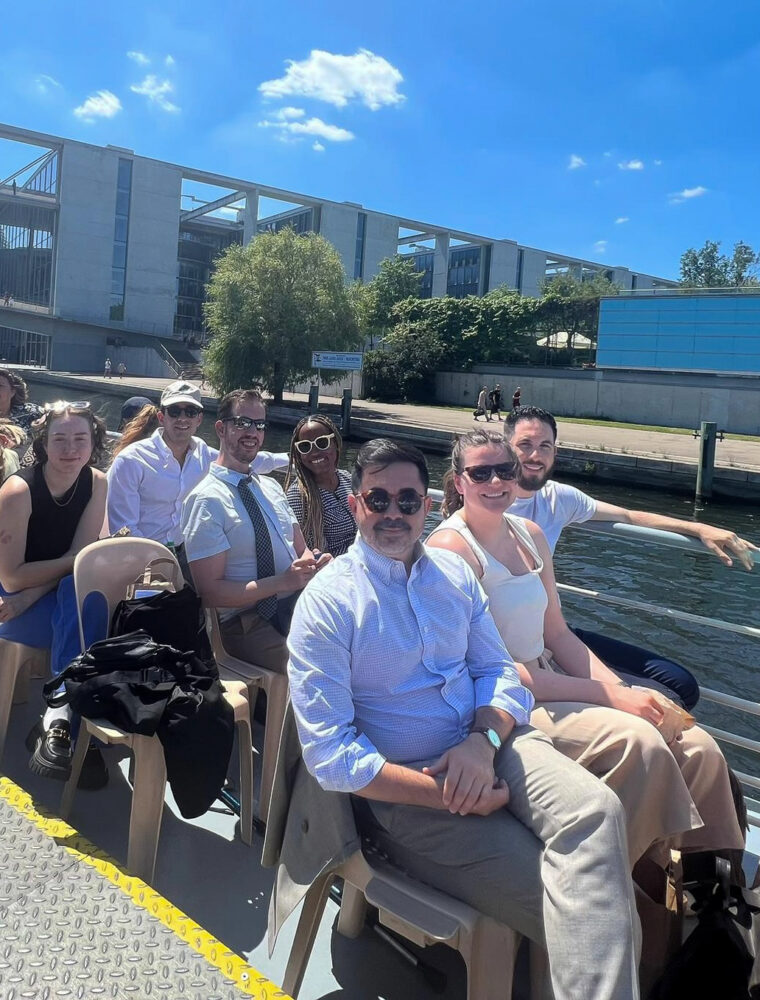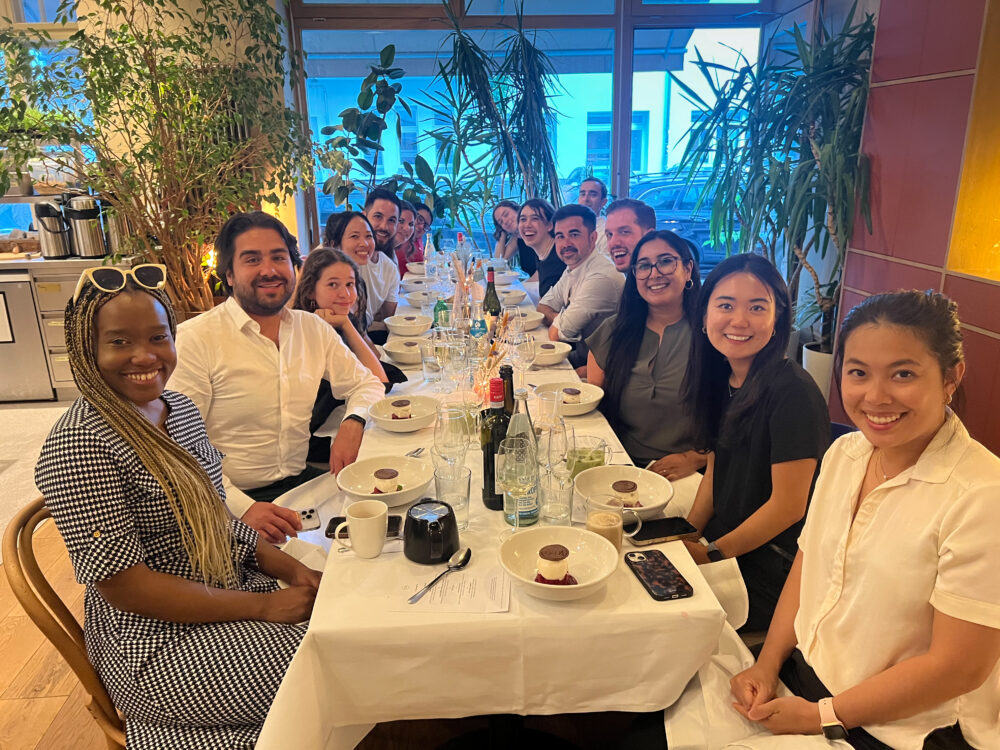Building Bridges through Transatlantic Dialogue
By Brianna Dimas, Julia Munslow, Anum Ali Mohammed
Earlier this month, as the German parliament wrapped up its final week in session and students kicked off their summer breaks, a curious group of young, diverse American leaders made its way from Washington, D.C. to Brussels and to Berlin, on a mission to learn all they could about US-European relations and infuse their diverse voices and perspectives into the transatlantic dialogue.
These leaders made up the 7th cohort of Atlantik-Brücke’s innovative New Bridge Program. The program allows emerging leaders from historically underrepresented communities to learn and engage in conversations about transatlantic relations over the course of a 10-day program. Fellows from a variety of personal and professional backgrounds dove into a wide range of topics spanning historical and contemporary political and social issues involving the U.S. and Europe. Our 11-person cohort included elected officials, public servants, private sector representatives, and media professionals from across the nation, including Hawaii, Virginia, Texas, D.C., New York, Georgia, Washington, and more.
The fellows met for the first time in Washington, D.C. Here, we received a crash course on the history of Germany and the European Union at Georgetown University, visited the ARD news studio to discuss our views on current events as well as German perceptions of Americans, and ended the first leg of our trip with a visit to the Holocaust Memorial Museum and the German Historical Institute, where we reflected on the lasting legacy of WWII and the importance of diversity, inclusion, and acceptance of people from all backgrounds.
After a seven-hour flight across the Atlantic, we landed in Brussels and immediately started exploring some of the city’s cultural sites, while indulging in Belgium’s signature chocolate and waffles. The next day, we visited the European Parliament and discussed how the EU government works, meeting with representatives from the office of Member of the European Parliament David McAllister.
The day ended with a tour of and briefings at the 41-hectare NATO headquarters on the outskirts of Brussels, where we heard about how the alliance works and monitors major conflicts, such as the war in Ukraine. The visit to NATO was one of the cohort’s most memorable experiences, as access to this space is usually limited to high-level government and defense professionals. Fellow Jordan Cohen, a policy analyst at the CATO Institute, shared the following reflection: “Seeing NATO was an unforgettable experience. The building and surrounding campus were beautiful and unlike anything that I’ve ever seen. Nonetheless, my biggest takeaway is that opinions within NATO are not monolithic, and there is open disagreement about the important issues for transatlantic security.”
After a busy two days in Brussels, we hit the skies again en route to Berlin. Once we arrived in Berlin, we learned about the city’s history, including seeing remnants of Nazi Germany and the Berlin Wall. Our time in the city included visits to the State of Rhineland-Palatinate’s Berlin mission to learn about Germany’s political system; the U.S. Embassy, where we learned about the U.S. priorities in its relationship with Germany; and a tour of the historic Reichstag Dome, the meeting place of the German parliament.
Several fellows were especially struck by how much Europe prioritizes compromise and solution-based policy in its governance, particularly in contrast to the polarization of politics in the U.S. Fellow Bao-Tram Do, CEO of the Center for Women & Democracy, shared: “I deeply appreciated Germany’s democratic values of collaboration across party lines, transparency to foster trust in government, and promotion of gender equality in positions of power. I was also surprised in our conversations that women’s representation across different fields such as government and the private sector were many times 50%. Germany demonstrates that gender parity in government and the workforce is possible and provides a model for the U.S. to draw valuable insights.”
We also heard from entrepreneur Hans Raffauf who has founded several technology companies in Germany. He shared with us the journey of the German education and apprentice system as well as the struggles of securing venture funding for entrepreneurs. He also spoke about the gender-based difficulties for female founders who only make up a very small percentage of the entrepreneur population in Germany.
While in Germany, we also took a day trip to Hamburg. We traveled by train and experienced Germany’s interrail system firsthand before arriving at sessions to learn more about the country’s education system and apprenticeships, labor and social affairs programs, and the country’s colonial past. During a walking tour through Hamburg, we saw how the effects of colonialism continue to reverberate through contemporary German society. Fellow Nicole Jackson Mansch, Chief of Staff at the U.S. Department of Labor, shared: “During our session with the Human Resources Department at Hapag-Lloyd [in Hamburg], I learned that expecting mothers get 6 weeks of paid maternity leave before giving birth, in addition to 8 weeks after the birth of their child. I would love for the U.S. to adopt similar, if not better, protections for pregnant women. Sometimes, women in the U.S. decide to take unpaid leave in order to spend key moments bonding with and caring for their newborn child after giving birth. Our conversation with Hapag-Lloyd staff illustrated that the U.S. still has room to improve its protections for pregnant women and new mothers.”
Our fellowship ended back in Berlin, where we learned about social issues in Germany, including a conversation with Armand Zorn, a Member of the German Bundestag, who discussed his background, journey, and election as one of the few Black elected officials, and Angelo Camufingo, a social justice consultant and DEI expert who spoke to us about the history of racial issues in Germany and the various ways to teach racial justice through a spectrum of lenses.
The night ended with a dinner at FREA Lab, a zero-emission Michelin Star restaurant, joined by youth activists from Fridays for Futures, who spoke about the climate crisis and the steps they would like to see Germany and the EU take to ensure a more environmentally friendly future.
Impact on Fellows
“The New Bridge Program was a phenomenal experience,” shared fellow Abdullah Hammoud, who serves as the current Mayor of the City of Dearborn, MI. “It provided me a window into the importance of German-American partnerships, as well as an opportunity to bring my learnings home.”
The New Bridge experience was impactful and eye-opening for each of the fellows. As we forged personal connections with each other, we also grew in our understanding of international and transatlantic relations. Reflecting on our time with the program, the recurring theme that comes to mind is “similarity despite differences.” When we arrived and met each member of the cohort, our backgrounds and perspectives seemed so different and unique. Yet, as we got to know each other and dove deeper into our personal experiences, hopes, and fears, we learned how similar each of us are and what connects us. As young leaders, we feel proud of our past accomplishments, but we are also restless and ambitious, wondering what our futures will hold and whether we are making the right choices.
We also saw many similarities between the U.S. and German social and political systems. Both countries have strong democratic systems with intense party politics. Both countries have inequities which current social systems struggle to adequately address. While the German education system is lauded internationally for its apprenticeship system, which features strong connections between academic instruction and applied skills in the workplace, it is also criticized for tracking individuals into career paths that sometimes limit socioeconomic mobility. The U.S. education system is a similar paradox of opportunity and limitation.
Finally, we saw similarity in how diverse groups are treated in each country. Germany’s history of antisemitism has undeniable parallels to America’s history of anti-Black racism and discrimination. It was striking to see the many ways that the U.S. and Germany are similar and the direct ways in which our economies, politics, and culture are intertwined.
Throughout the trip, the importance of the relationship between the EU and the U.S. became increasingly clear. In our global society, it’s important that countries listen and learn from one another on world issues including climate, diversity, economics, politics, and more to create a brighter future for us all.
The program truly is a “New Bridge” in each of us understanding the history, culture, and logistics of Germany, Belgium, and the United States but taking that newfound dialogue and learning opportunity and using it to build new bridges and forge new transatlantic relationships that will carry an impact far beyond this program. Not only can we take best practices with us, in our opportunities within the United States to create new ideas and improve existing processes, we also can now pick up the phone and have true, invaluable connections that are just as invested in progress and innovation – between our countries.
“I think we can all agree on the fact that good transatlantic relations are important and will remain important, as we can only develop an understanding of the other side’s perspective if we keep in touch and talk to one another,” said Ulrich Mueller, member of the Executive Board of the Joachim Herz Stiftung, at one of our events in Hamburg. “Particularly in times of multiple crises, ongoing dialogue between partners is essential to maintaining the mutual understanding we all value.” We agree wholeheartedly with this sentiment and feel energized by the possibilities for continued engagement with Germany and the transatlantic community.
Thank you to Atlantik-Brücke and its partners for making this incredible journey of growth and discovery possible. Without the program, many of us would not have had the opportunity to learn about or meaningfully engage in the transatlantic dialogue.

